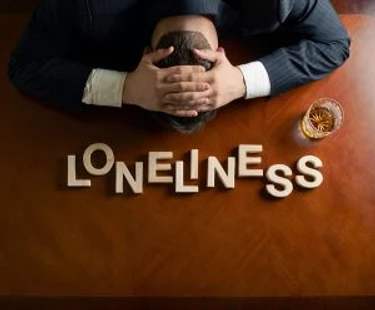Have you ever felt lonely or isolated?
Have you ever craved for social connection or acceptance?
If you answered yes to any of these questions, you are not alone. In fact, you are experiencing a fundamental human need: the need to belong. Many of us know the feeling of eating too much when we are lonely or stressed. This is a common habit for over one-third of American adults who regularly use food as a coping mechanism. [1] At the same time, another one-third of American adults suffer from chronic loneliness.[2]
These two alarming public health issues, which could be called epidemics, are closely linked. For millions of Americans, food is a way to fill the emotional emptiness and soothe the pain of loneliness.

What defines the need to belong?
The need to belong is defined as the desire to form and maintain close, lasting relationships with other individuals. It is one of the most basic and universal psychological needs, along with the needs for food, water, shelter and safety. According to some researchers, the need to belong is as strong as the need for food, and can even override other needs in certain situations [3].
Why is the need to belong so powerful?
Evolution
One reason is that it has evolutionary roots. Humans are social animals who have evolved to live in groups for survival and reproduction. Being part of a group provides protection from predators, access to resources, and opportunities for mating. Being rejected or excluded from a group, on the other hand, can have serious consequences for one’s well-being and survival [4].
Psychology
Another reason is that belongingness satisfies several psychological functions.
Belonging
-
-
-
- gives us a sense of identity, meaning and purpose
- helps us cope with stress, adversity and negative emotions
- enhances our self-esteem, happiness and health
- motivates us to behave in prosocial ways, such as cooperating, helping and sharing with others [5]
-
-
How can we fulfill our need to belong?
There are many ways to do so, but here are some general tips:
-
-
-
- Seek out and maintain meaningful relationships with people who share your values, interests and goals. These can be friends, family members, romantic partners, co-workers, classmates or anyone else who makes you feel valued and supported.
- Join groups or communities that align with your passions, hobbies or causes. These can be clubs, teams, organizations or online platforms that allow you to interact with like-minded people and pursue common objectives.
- Be open and authentic in your interactions with others. Express your thoughts and feelings honestly and respectfully. Listen actively and empathically to what others have to say. Show interest and curiosity in their lives and perspectives.
- Be kind and generous to others. Offer help when needed. Give compliments and feedback. Share your resources and skills. Show gratitude and appreciation for what others do for you.
- Avoid or limit contact with people who are toxic, abusive or unsupportive. These are people who make you feel bad about yourself, who criticize or judge you harshly, who manipulate or exploit you, or who violate your boundaries or rights.
- Seek professional help if you struggle with loneliness or social anxiety. These are common and treatable conditions that can interfere with your ability to form and maintain healthy relationships. A therapist can help you identify and overcome the barriers that prevent you from fulfilling your need to belong.
-
-
The need to belong is a powerful force that shapes our thoughts, feelings and behaviors. By satisfying this need, we can enhance our well-being and happiness, as well as contribute positively to society.
Remember: you are not alone. You belong.
References:
[1] https://www.apa.org/news/press/releases/stress/2013/eating
[2] Wilson, C., & Moulton, B. (2010) Loneliness among Older Adults: A National Survey of Adults 45+. Prepared by Knowledge Networks and Insight Policy Research. Washington, DC: AARP.
[3] Baumeister R.F., Leary M.R., The need to belong: desire for interpersonal attachments as a fundamental human motivation., Psychological Bulletin 1995;117(3):497-529.
[4] Williams K.D., Ostracism: The power of silence., Guilford Press 2001.
[5] Deci E.L., Ryan R.M., The “what” and “why” of goal pursuits: Human needs and the self-determination of behavior., Psychological Inquiry 2000;11(4):227-268.